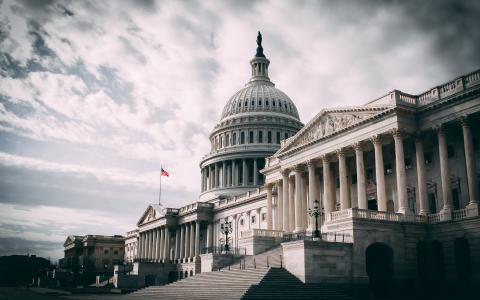
A series of heated debates are coming to the fore in Washington over how best to get additional relief funds into the hands of cash strapped Americans.
KEY FACTS
A deep divide has emerged over the prospect of sending more federal aid to state and local governments; House Speaker Nancy Pelosi has suggested that states will need another $1 trillionto cover budget shortfalls while Republican Majority Leader Mitch McConnell has proposed allowing states to go bankrupt rather than sending them more aid.
A proposal to send monthly payments of $2,000 to qualifying Americans is gathering Democratic support, though without any Republican backing, the idea is unlikely to gain any real traction.
Democrats are looking to spend big across the board, with discussions underway for provisions that would boost funding for housing, nutrition assistance, broadband in rural areas, law enforcement, Medicaid, federal pensions, and rent and mortgage relief, the Washington Post reports.
Republicans are wary of more spending, and have advocated for pumping the brakes on new funding in favor of seeing how the existing stimulus spending shakes out in the economy.
President Trump has pushed for a payroll tax cut in the next package to encourage people to get back to work, but members of the Republican party have pushed back against the idea.
McConnell has pushed hard in recent days for limits on legal liability for businesses in order to protect them from lawsuits related to the coronavirus; "If there's any red line [for Republicans], it's on litigation," the Republican leader said.
CRUCIAL QUOTE
“They'll come around on this,” Pelosi said of Republicans on MSNBC’s The Beat on Tuesday, projecting confidence that her party will come out ahead in negotiations this week over more federal funding for states. “You know why? ...Republican and Democratic governors need this.”
BIG NUMBER
The national debt will likely reach a staggering $3.7 trillion this year; the Treasury Department has said it will borrow a staggering $3 trillion this quarter to keep up.
KEY BACKGROUND
American job losses caused by the coronavirus crisis now number more than 30 million, with more expected to be announced on Thursday. Since the crisis began, lawmakers have passed four pieces of rescue legislation. The first two bills—which shored up funding for testing and small business loans and established tax credits for paid sick leave and expanded unemployment benefits, respectively—were followed by the historic $2.2 trillion CARES Act. That bill was succeeded by another $484 billion package that replenished funding for emergency assistance for small businesses after the Paycheck Protection Program, one of the cornerstones of the CARES Act, exhausted its initial $350 billion in funding after less than two weeks.
WHAT TO WATCH FOR
The Senate has returned to Washington, but the House is still working remotely. Democrats in both houses want to move quickie on the next round of legislation, but Republicans have advocated for a slower approach. This week is likely to be crucial for negotiations on both sides of the aisle.
This article originally appeared on Forbes.



